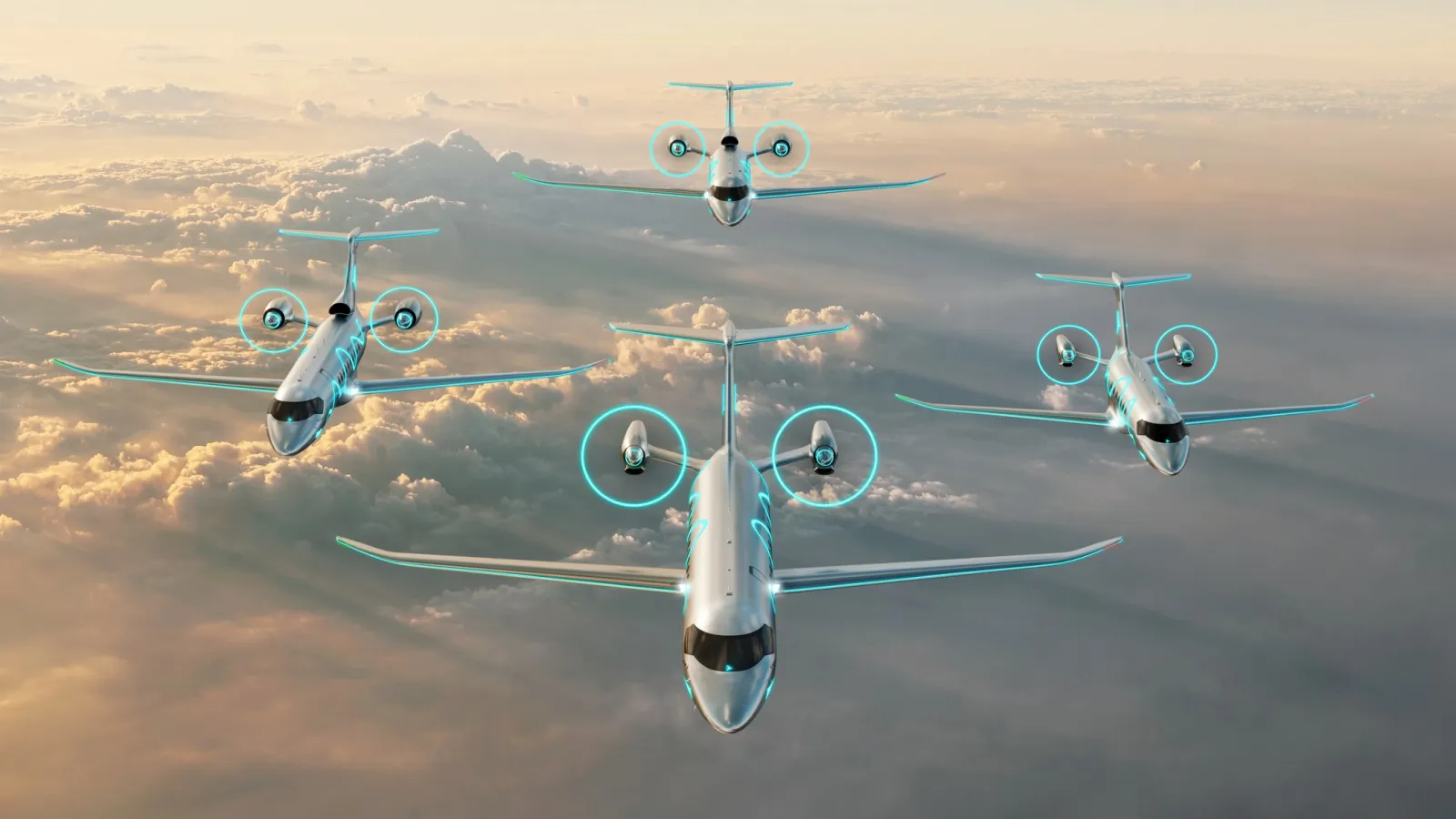
Embraer Unveils The Hydrogen - Electric Future
Dec 06, 2022

Embraer has introduced a groundbreaking initiative focused on hydrogen-electric aircraft, marking a significant step toward sustainable aviation. This innovative approach aims to reduce carbon emissions and enhance fuel efficiency in the aviation sector. The company envisions a future where hydrogen serves as a primary energy source, paving the way for cleaner and quieter flights. By leveraging advanced technologies and collaborating with key partners, Embraer is committed to leading the charge in developing eco-friendly aviation solutions. This initiative not only underscores the importance of sustainability but also positions Embraer at the forefront of the evolving aerospace landscape.
As the world moves towards a more sustainable future, the aviation industry is no exception. Embraer, a leading name in the aerospace sector, is taking bold steps towards a hydrogen-electric future. This innovative approach not only aims to reduce carbon emissions but also paves the way for a new era of "sustainable aviation". In this article, we will explore the various aspects of Embraer's hydrogen-electric initiatives and their implications for the industry.
Understanding Hydrogen-Electric Technology
The concept of hydrogen-electric technology involves using hydrogen fuel cells to generate electricity, which then powers electric motors. This process emits only water vapor and heat, making it an attractive option for environmentally conscious aviation. Embraer is investing heavily in research and development to enhance this technology, making it viable for commercial use.
Why Hydrogen? The Benefits of Embracing Hydrogen-Electric Aviation
Hydrogen offers several advantages over traditional aviation fuels. Here are some of the key benefits:
| Benefit | Description |
|---|---|
| Zero Emissions | Hydrogen fuel cells produce only water and heat as byproducts, significantly reducing the aviation industry's carbon footprint. |
| Energy Efficiency | Hydrogen fuel cells can convert chemical energy directly into electrical energy, making them more efficient than combustion engines. |
| Renewable Energy Source | Hydrogen can be produced using renewable energy sources, further enhancing its sustainability credentials. |
| Longer Range | Hydrogen has a higher energy density compared to batteries, allowing for longer flight ranges without the need for frequent refueling. |
Embraer’s Commitment to Sustainability
Embraer's commitment to sustainability is evident in its recent initiatives. The company is working on several projects aimed at integrating hydrogen technology into its aircraft designs. This commitment aligns with global goals to achieve net-zero carbon emissions by 2050.
One of Embraer's notable projects is the development of the "E-Jet family of aircraft". These jets are being designed with the potential to utilize hydrogen fuel systems, making them suitable for both regional and global travel. The company is collaborating with various stakeholders, including governments, research institutions, and industry partners, to accelerate the development of hydrogen infrastructure necessary for this transformation.
Challenges in Implementing Hydrogen-Electric Technology
While the advantages of hydrogen-electric technology are compelling, several challenges must be addressed before widespread adoption can occur:
| Challenge | Description |
|---|---|
| Infrastructure Development | The current lack of hydrogen refueling infrastructure poses a significant barrier to the adoption of hydrogen-electric aircraft. |
| High Production Costs | Producing hydrogen, especially green hydrogen, can be costly, which may affect the overall economics of hydrogen-electric aviation. |
| Safety Concerns | Hydrogen is highly flammable, and ensuring safety in its storage and transportation is crucial for its acceptance in aviation. |
| Regulatory Framework | Establishing a comprehensive regulatory framework for hydrogen-powered aircraft is necessary to ensure safety and standardization. |
The Future of Aviation: A Collaborative Effort
The transition to hydrogen-electric aviation will require collaboration across various sectors. Embraer is leading the way by forming partnerships with governments, academic institutions, and other industry players. These collaborations aim to develop the necessary technology, infrastructure, and regulatory standards that will enable the safe and efficient use of hydrogen in aviation.
Moreover, the aviation industry as a whole must invest in research and development to explore innovative solutions for the challenges outlined above. By working together, stakeholders can create a roadmap towards a hydrogen-powered future, ultimately benefiting not only the aviation sector but also the environment and society as a whole.
Conclusion: Embracing a Hydrogen-Electric Future
Embraer’s unveiling of its hydrogen-electric initiatives marks a significant step towards a more sustainable aviation industry. With its commitment to "zero emissions" and innovative technology, the company is setting a benchmark for others in the industry. As challenges are addressed and collaborations grow, the dream of a hydrogen-electric future may soon become a reality, transforming air travel for generations to come.
In summary, Embraer's vision for hydrogen-electric aviation is not just about technological advancement; it's about leading the charge towards a more sustainable and environmentally friendly future. The journey may be complex, but the destination promises to be rewarding for the planet and the aviation industry alike.
Related Articles

Explore Thailand: The Best Islands to Visit for Paradise, Adventure, and Relaxation

The Ultimate Guide to the Best Islands in Thailand for Your Next Getaway

Do babies need passports? How to get a passport for a newborn

How to get a U.S. passport fast: here’s how to expedite the process

What is Mobile Passport Control: 5 reasons why you should use it

SENTRI vs. Global Entry: A detailed guide

Do you need a passport to go to the Bahamas? Let’s find out

Do you need a passport to go to Mexico? A detailed guide

Do you need a passport to go to Canada? We got the answer

Do You Need a Passport for a Cruise: An Essential Travel Guide

Booster Seat Requirements: All the Rules to Follow in Your Rental Car

What Are the World’s Most Powerful Passports, and How Does Yours Rank?

How to Take a Passport Photo at Home: A Helpful Guide

You've got to have heart! Southwest's new livery

Your opinion: Should water be free on low cost carriers?

Young women bolder than guys as solo travellers
